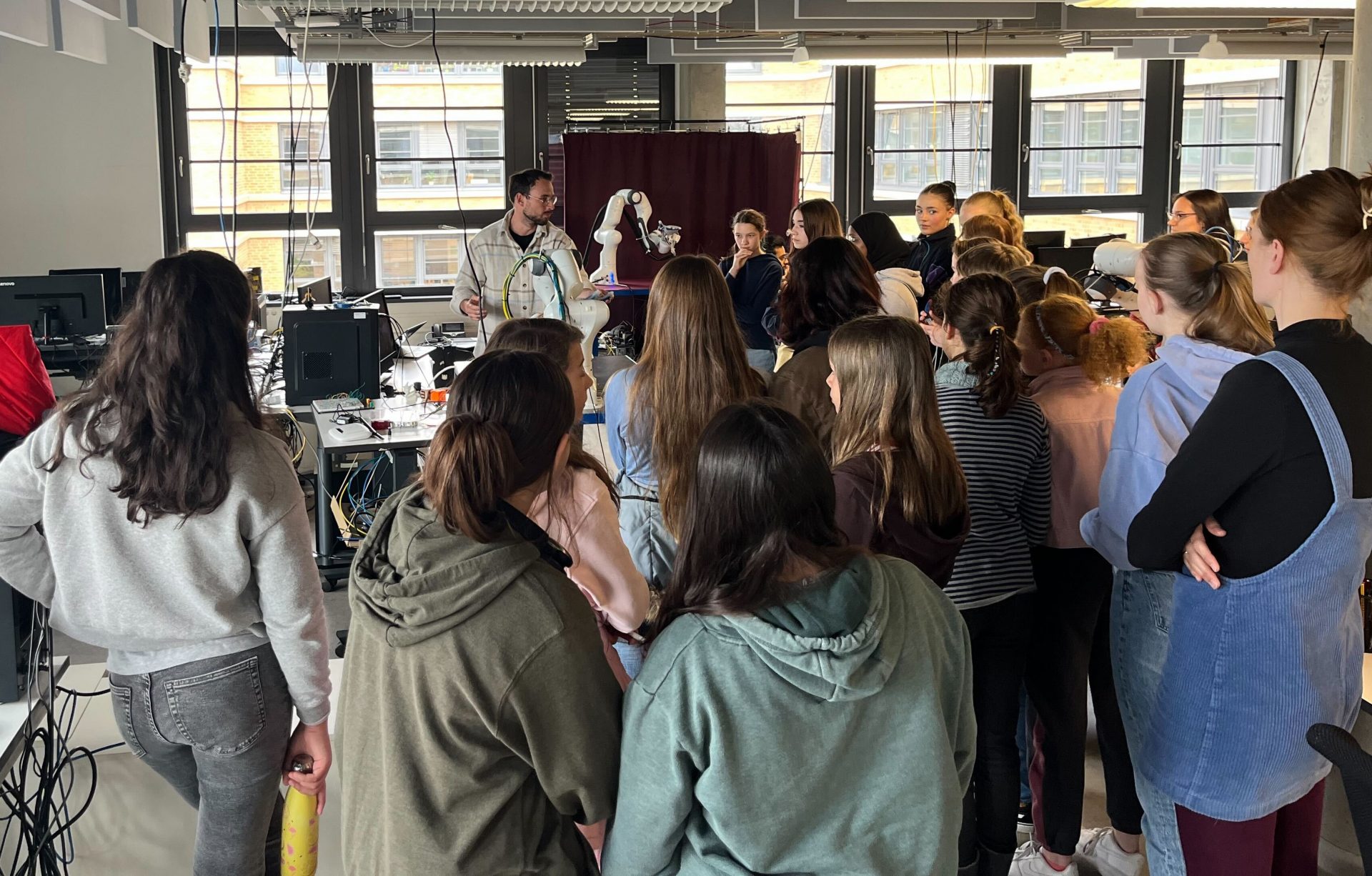Science of Intelligence hosts thirty school girls during Girls’ Day 2023
During this year’s Girls’ Day, on 27 April 2023, SCIoI opened its doors once again to school girls from the Berlin area. In the course of the day, thirty girls gained an insight into the Cluster’s work and got to interact with the many demonstrators in SCIoI’s labs.
After an introduction and an interactive discussion about intelligence, the scientists from SCIoI dived into the topics of their research. Lea Musiolek, doctoral researcher at SCIoI, explained how scientists are using fish movements to develop smarter robots. In her research, she models the movements of fish, singly and in pairs, in order to identify anticipatory strategies to be transferred to different robotic platforms.
After Lea’s informative talk, the group ventured to the RBO Lab, where doctoral researchers Vito Mengers, Xing Li, and Adrian Sieler gave live demonstrations of how they create robots that are truly intelligent and autonomous. Showcasing how a robotic arm can learn to unlock a mechanism with a key based on human demonstration, or how a soft robotic hand touches and manipulates objects intuitively truly amazed the audience.
SCIoI’s Asimov Lab hosts experiments on Human-Robot Interaction with Nao and Pepper robots, among other scientific setups. During the lab demonstration by doctoral researcher Magdalena Yordanova, the group of girls got to see live demonstrations of our humanoid robots. In her presentation, Magdalena explained how scientists help robots to get more intelligent and encouraged the girls to interact with the Nao robot. The group was very interested to learn how scientists at SCIoI teach robots how to take in and remember things just as humans do.
Postdoctoral researcher Asieh Daneshi studies how people’s behavior can affect others in groups. She uses virtual reality to help her understand how humans and robots interact with one another. During her session, every participant tried the VR headset and explored her research in a very interactive way.
The exciting day was wrapped up by a philosophical discussion with postdoctoral researcher Nina Poth, who studies how humans, animals, and computers learn and think in order to understand how intelligence works. To do this, she looks at concepts like how we use information in our brains, how we make decisions, and how we act on our beliefs. The participants delved on questions such as “Does intelligent also mean smart?”, “Where does a thought go, if we don’t think about it at the moment?” and “If each leg of an octopus functions as a brain, does the octopus get less smart if it loses one?”.
The SCIoI scientists were happy to engage with the school girls and present their research to them. According to the Federal Ministry, girls and young women in Germany still often choose professions or subjects of study where women are already overrepresented, leading them to miss out on potential career opportunities and future prospects. This is particularly true in technical fields such as computer science, natural sciences, mathematics, technology, and crafts, where there is a shortage of skilled workers and all talents are needed. In response to this, the annual Girls’ Day initiative, supported by the Federal Ministry of Education and Research (BMBF) and the Federal Ministry for Family Affairs, Senior Citizens, Women and Youth (BMFSFJ), aims to provide practical insights into STEM fields and careers and encourage girls to pursue their individual interests in career orientation.
The Cluster Science of Intelligence is strongly committed to equal opportunity and diversity and is delighted to have been able to provide an insight to its work during this annual event.





